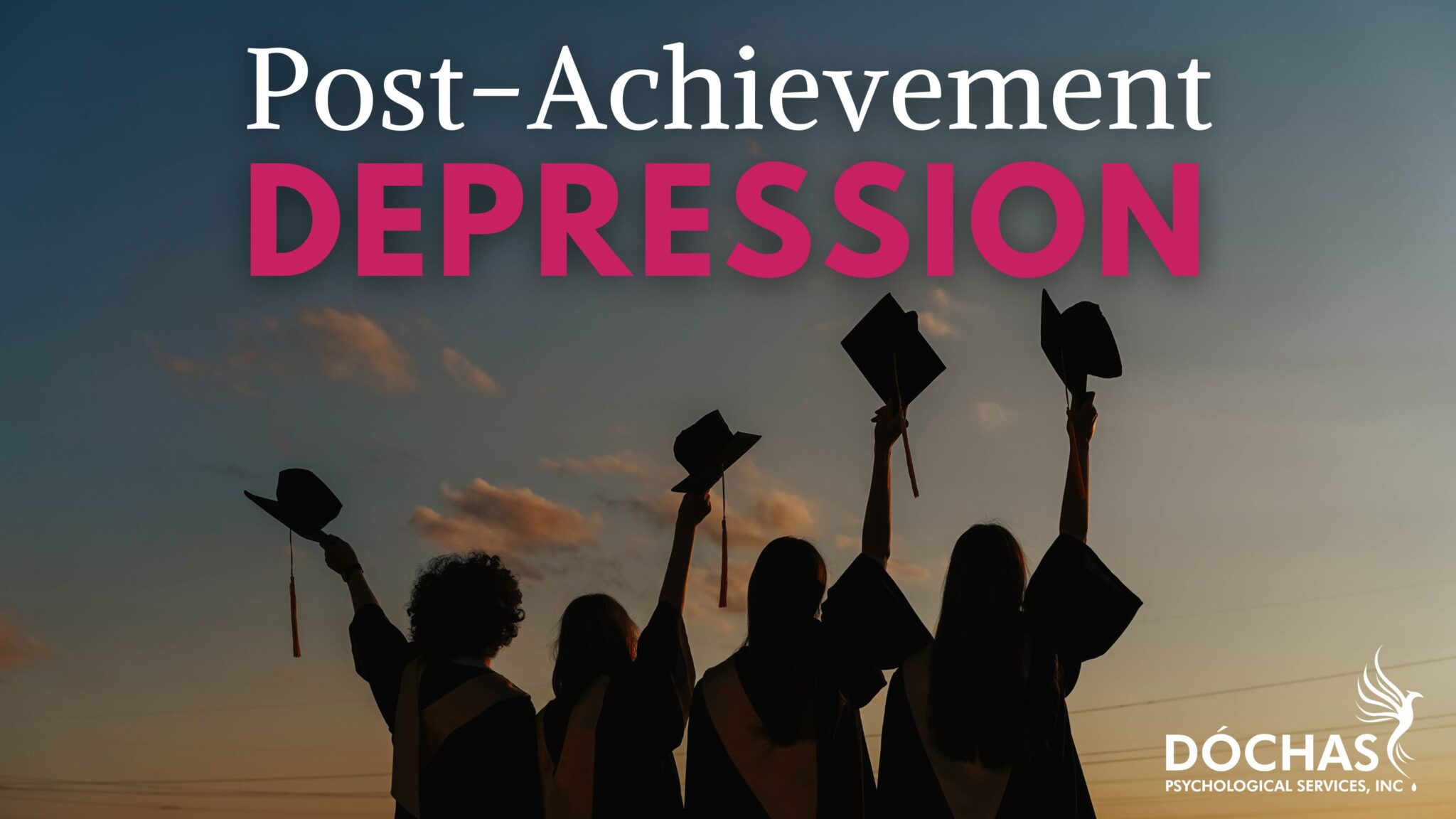You’ve worked toward a major goal for years. You finally cross the finish line, whether it’s graduating, landing a dream job, or achieving a lifelong bucket list item, and instead of feeling amazing, you feel off. Maybe even lost or low. It’s Skye on the blog this week, and if that sounds familiar, you’re not alone. This experience is often called post-achievement depression, and it can catch even the most goal-driven people by surprise.

What Is Post-Achievement Depression?
Post-achievement depression refers to the emotional dip that can happen after reaching a long-term goal. You might notice a sense of emptiness, lack of motivation, or even sadness, despite having accomplished something important.
Athletes, professionals, students, and even parents can experience this emotional slump once the thing they’ve been working toward is complete.

Why Does Post-Achievement Depression Happen?
Much of our motivation during a long pursuit is driven by dopamine, which is a neuro-chemical that fuels excitement and goal-oriented behaviour. But once we’ve reached our goal and that reward system slows down, we can feel an unexpected void.
This disappointment can also be worsened by the pressure we feel to be happy or fulfilled all the time, especially after a big success.
What Can Help?
Awareness is the first step. If you think post-achievement depression might happen to you, you can prepare for it. Here are a few ways to manage it:
-
Shift your focus to the journey: Instead of defining success by the outcome, reflect on what the process meant to you. What did you learn? What values did it reinforce?
-
Set a new goal (mindfully): Some people find motivation by setting a new challenge, but be careful not to fall into the trap of chasing endless achievement without taking time to rest and reflect on your journey.
-
Reflect and reconnect: Journalling, therapy, or conversations with trusted people can help you make meaning out of your experience and reconnect with what really matters to you.
Final Thoughts
Post-achievement depression doesn’t mean you’re ungrateful or broken. It means you’re human. Understanding it can help you show yourself compassion and guide you toward more sustainable, values-based motivation moving forward.
If you or someone you know is experiencing post-achievement depression, please reach out to Dóchas at 780-446-0300 or info@dochaspsych.com. Book an in-person or virtual appointment with one of our therapists here.
About Dóchas Psychological
Dóchas Psychological Services is a well-established and trusted therapy clinic located in Spruce Grove, Alberta. At Dóchas we value the idea that everyone deserves a safe space. Through connection and education, our team works hard to build a trustworthy relationship with each of our clients. It is our goal to create a community for our clients to feel like they belong.
Disclaimer
Information provided through Dóchas Psychological Services blogs or vlogs is meant for educational purposes only. They are NOT medical or mental health advice. You can read more about our disclaimer here.









